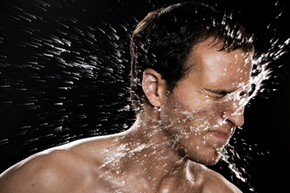"Don't go outside with a wet head or you'll catch your death of cold!" It's a warning that's been passed from one generation of parents to the next, along with the better-founded, "Don't go swimming right after you eat or you'll get a cramp!"
If you're one of those moms (or dads) who still follows the wet head equals head cold line of reasoning, you're not alone. In one survey, 40 percent of mothers said they believed sending their kids out in the cold weather with a wet head would get them sick [source: Pediatrics].
Advertisement
Who started this familiar maternal refrain? Part of the blame may rest with French chemist Louis Pasteur, who in 1878 exposed chickens to anthrax and then dipped their feet in icy water to see how it might affect their odds of catching the disease. The chickens developed anthrax and died. When he repeated the experiment but wrapped the exposed chickens in a warm blanket, they survived.
Human studies in the early 20th century seemed to confirm Pasteur's research. A German scientist discovered during World War I that soldiers who slept in cold, wet trenches were four times more likely to get colds than those who rested in dry barracks [source: Zuger]. Somewhere along the line, a few mothers must have caught wind of these studies and began forbidding their children to step foot outside until their heads were bone-dry.
It's also possible that people who believe that a wet head will lead to a cold have heard that a good percentage of the body's heat escapes through the head. That is a myth. In actuality, you lose just as much, if not more heat through a bare arm or leg as you do through your noggin.
The idea that going out with a wet head will lead to a cold is, like so many of those other old warnings, just an old wives' tale. So, if going outside with a wet head won't give you a cold, what will? Read on to find out.
Advertisement




